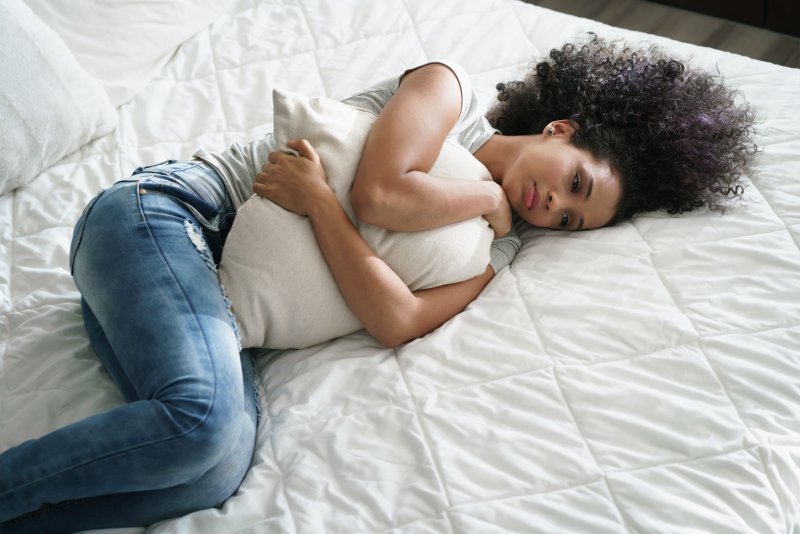
If you suffer from an anxiety disorder, you’ve probably spent many nights laying awake in bed unable to get to sleep. Obviously, this can have a pretty negative impact on your body and your mind on its own. But if you also have sleep apnea – a sleep disorder that causes millions of Americans to repeatedly stop breathing during the night – it can make the issue even worse. Most unfortunately, anxiety and sleep apnea often go hand in hand. Read on to learn more about this link and how it can lead to many a restless night.
How are Anxiety and Sleep Apnea Connected?
When a sleep apnea episode interrupts your breathing, the body is forced to wake itself up to get air. These awakenings pull you out of the sleep cycle, and they can occur many times during the night. In other words, having sleep apnea means there’s a good chance you’re not getting the quality rest you need. As a result, your mind will be much less capable of dealing with stress, which in turn leads to the worsening of anxiety. Furthermore, the interruptions will prevent your brain from fully recovering from the stresses of the previous day, which can take a toll on your mood.
Suffering from anxiety and sleep apnea can be dangerous. Both conditions tend to lead to elevated blood pressure, meaning they increase your risk of suffering from a possibly fatal heart problem. They can also both cause you to have panic attacks. Needless to say, the combined impact these conditions have on your health can be devastating.
Will Treating Sleep Apnea Help Treat Anxiety?
According to recent studies, sleep apnea treatment has been shown to decrease the symptoms of anxiety. Naturally, if a sleep disorder is contributing to your anxiety, treating the former should also help solve the latter. After all, once you stop being jolted awake in the middle of the night, you’ll be able to reach the deepest stages of the sleep cycle so that your mind feels refreshed and well-rested in the morning.
How to Improve the Quality of Your Sleep
Sleep apnea can be treated through CPAP therapy or an oral appliance, depending on how severe your particular case is. There are other tricks you can use to help yourself sleep more soundly, such as:
- Sleeping on your side instead of on your back so that you can breathe easier.
- Stretching before bed to release the tension in your muscles.
- Minimizing your exposure to blue light (the light emitted by electronic screens that can disrupt your body’s sleep cycle).
Don’t let sleep apnea and stress control your life. If you think you have a sleep disorder that’s making your anxiety worse, take a sleep quiz today; the results will help a sleep expert determine whether or not you require a consultation.
About the Author
Dr. Pamela West has studied with some of the country’s finest sleep dentists. She founded iSleep Solutions to give Summerlin patients a place to find a remedy for the sleep apnea that is keeping them up at night. She works closely with medical experts across Nevada to identify the symptoms of sleep apnea (which can include anxiety) and figure out the best treatment protocol for each patient. To schedule an appointment, visit her website or call (702) 602-2000.
